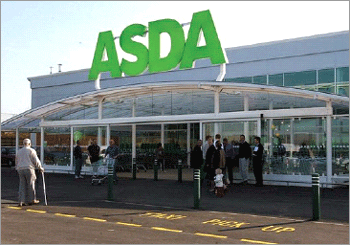Household Bills
Sainsbury’s Asda deal would ‘push up food and fuel prices’

The proposed merger between Sainsbury’s and Asda would push up food and fuel prices, the competition watchdog has warned.
Shoppers would also see a reduction in the range and quality of products if the two retailers merged, the Competition and Markets Authority (CMA) said.
Provisional findings from an independent panel raised concerns that the deal would lead to a “worse experience” for shoppers in-store and online.
It said the deal would lead to higher fuel costs at more than 100 locations where Sainsbury’s and Asda petrol stations overlap.
Stuart McIntosh, chair of the independent inquiry group who carried out the investigation, said: “These are two of the biggest supermarkets in the UK, with millions of people purchasing their products and services every day.
“We have provisionally found that, should the two merge, shoppers could face higher prices, reduced quality and choice, and a poorer overall shopping experience across the UK. We also have concerns that prices could rise at a large number of their petrol stations.”
The CMA has put forward options for addressing its provisional concerns. These include blocking the deal or requiring the two retailers to sell off a significant number of stores and other assets – potentially including one of the Sainsbury’s or Asda brands – to recreate the competitive rivalry lost through the merger.
But the watchdog said it is “likely to be difficult for the companies to address the concerns it has identified”.
The response from Sainsbury’s & Asda
A spokesperson for Sainsbury’s and Asda said: “These findings fundamentally misunderstand how people shop in the UK today and the intensity of competition in the grocery market. The CMA has moved the goalposts and its analysis is inconsistent with comparable cases.
“Combining Sainsbury’s and Asda would create significant cost savings, which would allow us to lower prices. Despite the savings being independently reviewed by two separate industry specialists, the CMA has chosen to discount them as benefits.
“We are surprised that the CMA would choose to reject the opportunity to put money directly into customers’ pockets, particularly at this time of economic uncertainty.
“We will be working to understand the rationale behind these findings and will continue to press our case in the coming weeks.”
The CMA opened its investigation into the merger last August, probing whether the multi-billion pound deal could lead to less choice, higher prices and worsening quality of service for consumers if it gets the go ahead.
It referred the deal to an independent panel in September after identifying “sufficient concerns” during its initial investigation.
A merger between the two supermarket giants was first announced in April. At the time, the two retailers said they expected their stronger purchasing power could deliver lower prices – up to 10% on many frequently purchased products.